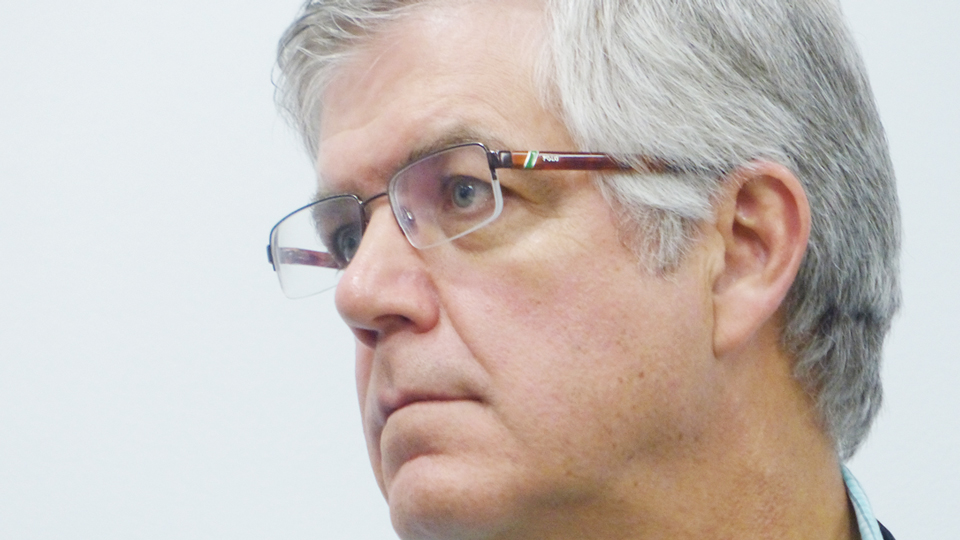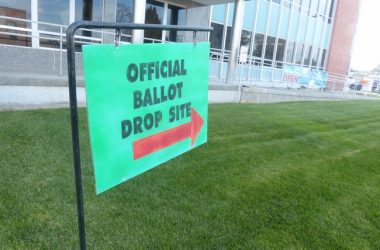
By Pat Caldwell
The Enterprise
SALEM – Long before most of his constituents are awake, Cliff Bentz rises in the darkness of his apartment in Salem to prepare for another day at the Oregon Legislature.
His morning routine is a familiar one for the Ontario lawmaker after spending 10 years representing the voters of District 60. During the session, he is usually up by 4 a.m., but won’t see his apartment until after 7 p.m. Every dawn signals another day where he will sit in meetings, meet lobbyists and handle concerns from voters while he works to create legislation he hopes will help his district.
“You have to be half crazy to do this,” he said with a laugh.
In his decade at the Legislature, Bentz has slowly and subtly accrued political influence.
Now, Bentz is either a member or vice chairman of several powerful legislative committees. He sits on the House Committee on Energy and Environment. He is the vice chair of the House Committee on Revenue and co-vice chair of the joint committees on Tax Credits, Transportation Preservation and Modernization, and Tax Reform.
While all his committee assignments are important, his presence on the Revenue and Transportation committees puts the Drewsey native in a crucial position of power.
An Eastern Oregon product
He doesn’t want to talk about himself. He would rather focus on his constituents.
“I hate to have you write an article on this,” he said.
At 65, Bentz is a product of Eastern Oregon, with roots that run deep in a rural region of cattle ranches and small towns. His district is big – and rural – and includes Malheur, Baker, Harney, Grant and part of Lake counties.
He succeeded Tom Butler.
When he arrived in Salem he learned early on, he said, hard work pays off. He also realized that to be effective he needed to be better informed than other officials.
“The secret of success in this building is understanding the issues. If you show up at five every morning and you work really hard at understanding the issues, you recognize that there are only a few people who understand the issues,” he said. “Most people have not spent the time to get ready.”
That knowledge allows him to debate issues calmly, citing facts and not emotion.
“You don’t stand on the floor of the House and shoot off your mouth. When people shout and pound on the table, no one listens,” he said.
Bentz prepares for action at the Legislature the way a coach of a football team might plan for a big game.
Research is key. He reads the initial language of the bill or chats with state agency officials that legislation will impact. He also spends the little quiet time he has reading reports on the issue. A good example, he said, is the work he completed on the recently released transportation package recommendations.
“Elements of the transportation package, like the congestion piece or the Connect Oregon piece, each of these elements requires research into what has been done before or what other states are doing. You must go in and ferret out all of that,” said Bentz.
Bentz said his homework helps when legislation reaches one his committees.
“On any given day, we might have four or five bills to be reviewed and assessed and ultimately voted upon. Someone has to do all the research on the bill and be ready to explain it. You have input always if you know the subject matter better than anyone else,” said Bentz.
Often, Bentz is that “someone” who completed the research and is ready to explain its potential impact.
His long tenure in Salem and ability to research a subject deeply produces success.
“People who come to my office know I’ve been there 10 years and seen most of these bills in different iterations before and they come in and ask what do you think we should be doing? I will be able to say, ‘Your idea can be improved’ or ‘If you want me to support it then you need to change it,’” said Bentz.
Bentz also realized he had to be a negotiator to achieve any success, particularly when he is in the minority political party.
“I spent a lot of years voting no and not doing much for my district,” Bentz said. “Eventually you have to realize there are 90 other people here who all think they should be governor.”
And that means checking his ego.
“None of this works unless you learn to work with people. You realize that there are a lot of people here and you are not the boss. Needlessly poking people doesn’t work,” he said.
Bentz’s philosophy has paid off with both fellow lawmakers and leading constituents back home.
“Cliff Bentz is one of the hardest working, most thorough legislators in the Capitol. On every issue that he works on, Cliff is a tireless advocate for his community and for eastern Oregon,” said Speaker Tina Kotek, a Portland Democrat.
John O’Keeffe, Oregon Cattlemen’s Association president from Adel, said Bentz is an asset for his organization.
“He understands the culture, the lifestyle. He spent a long time working on legal issues for ranchers. We have good access and we have open conversations and we get along really well,” O’Keeffe said.
O’Keeffe said he likes Bentz’s ability to focus on high-profile issues without losing sight of the voters in his district.
“He has been active in the big picture for all of Oregon like taking on transportation, which is not only an eastern Oregon issue but an Oregon issue in general,” O’Keeffe said.
The price
Bentz has applied his patient, research-driven style to one of the current session’s largest issues – state transportation.
“There is so much unpredictably. I could spend the entire six months of my life working on a transportation package to see it blow up,” he said.
For nearly a year Bentz has worked with other lawmakers to prepare a transportation package for the state.
As the vice chairman of the transportation committee – which meets four times a week — he sits at the heart of the group that recently presented recommendations for a road renovation package.
That included a six-cent boost in the gas tax and raising car registrations by $20.
“We are falling behind and our city streets are failing and our county roads are failing and bridges in the state are failing,” he said.
None of his legislative work was easy, Bentz said.
“The place does not lend itself to getting what you want. It is not just a matter of having a really good idea and introducing a bill,” Bentz said.
Instead, Bentz said, the effort to achieve success encompasses negotiation, compromise and, most of all, incredible patience.
“You’ve got the small matter of who is in power and I am not. That makes it even more difficult. You have to go to the party in power if you want a bill and explain to them why it is in their best interests,” said Bentz.
That process, he said, can often be a hard sell.
“There is no good reason for them to help the minority party. So, you must show them whatever you come up with will benefit them as much as it will benefit you,” he said.
One method to getting what he wants is to find ideas favored by politicians on both sides of the political aisle. A good example, he said, is the transportation package.
“The transportation package has something in it for everybody because everyone will be paying for it. Working on that kind of legislation means you will have an opportunity to help those in power while you help your own constituents. So, the trick is to find opportunities that are broadly supported and broadly needed,” he said.
Bentz has invested time in another key move for Malheur County – legislation to create a new economic agency and provide some state funding. At the core of that plan is a proposal to create a rail loading facility in Malheur County.
The legislation was co-sponsored by Kotek and has passed the House.
Bentz paired that up with funding in the transportation bill.
“It is one thing to say we need $26 million but another to find it. We have to figure out where that money is going to come from,” he said.
Bentz said getting the transportation package through would be a session highlight for him.
“It will do more to help our area than anything I have done in this session,” he said.




